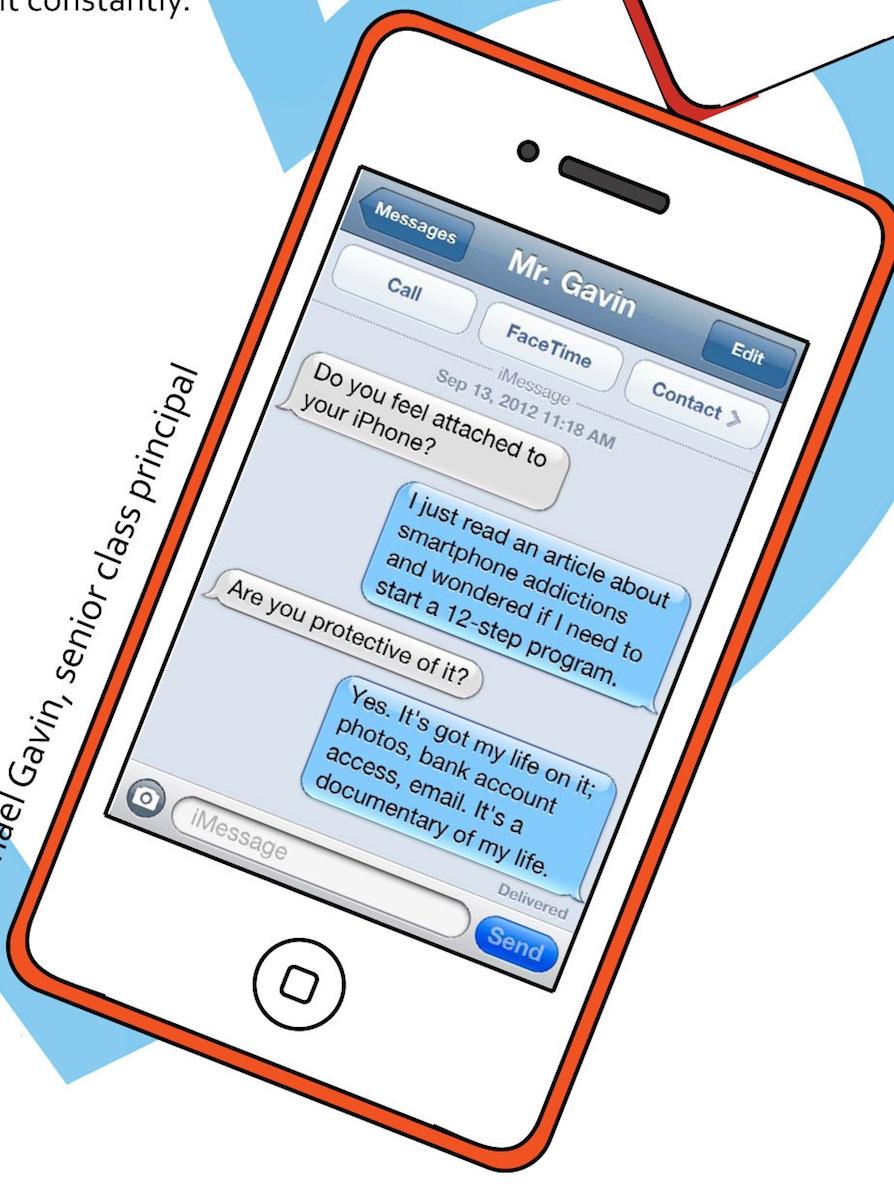Students and staff are quick to label the relationship with their smart phonesas an attachment. They cherish their phones like a loved one, using a passcode and a protective phone case, such as an Otterbox. This attachment may mean they are actually falling in love with them.


According to The New York Times article “You Love Your iPhone. Literally.,” some psychologists say in addition to potentially loving their iPhone, a person could also become addicted to using it. This happens because the parts of the brain that turn habits into attachments are also used when a person is operating an iPhone.
When asked to watch a silent video of a vibrating iPhone, the people tested claim they heard the vibrations, too, even though there were none. When they heard an audio recording of the vibrating phone, they could see it in their minds, too. According to Martin Lindstrom, a writer for The New York Times, this powerful cross-sensory phenomenon is known as synesthesia. Synesthesia is a condition where one stimulation provokes another, such as sounds producing the visualization of a color.

In another study Lindstrom’s test included handing 20 babies, betweenthe ages of 14-20 months, a Blackberry to see what they would do with it. They quickly tried to grasp it and swipe their fingers across it, assuming it was an iPhone.
“It appears that a whole new generation is being primed to navigate the world of electronics in a ritualized, Apple-approved way,” Lindstrom wrote in his article.
Based on these studies, experts have concluded most iPhone owners react to their phones as they would react to a significant other by keeping it close to them and checking on it constantly.

